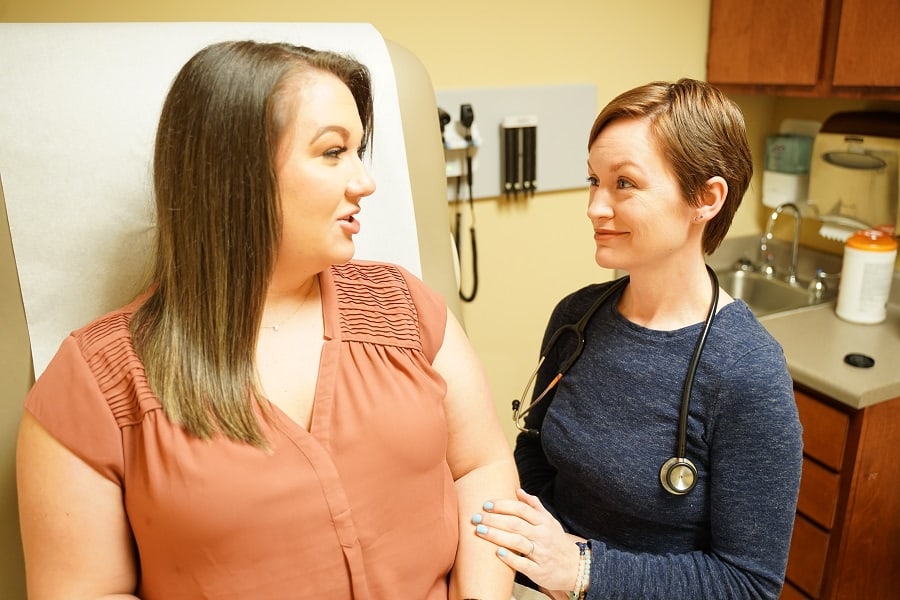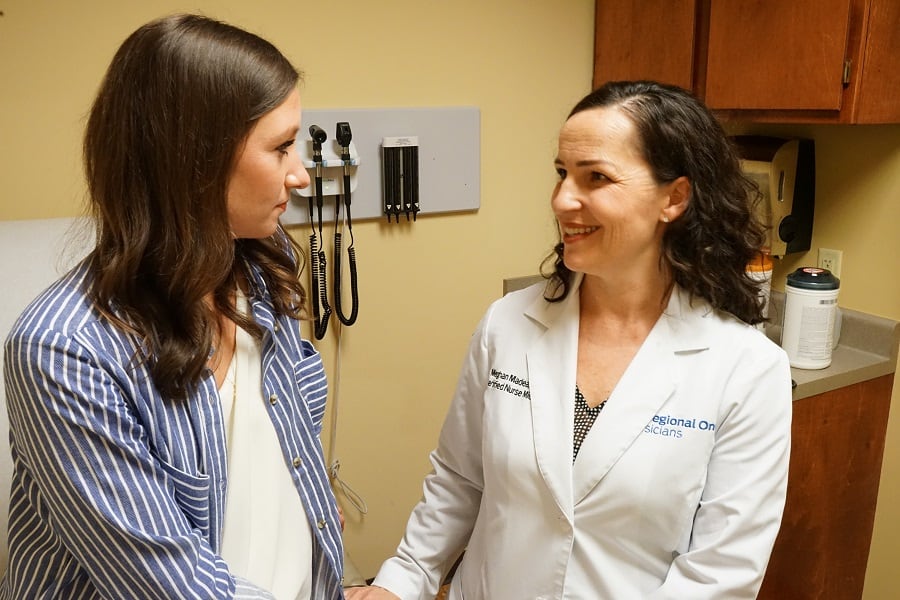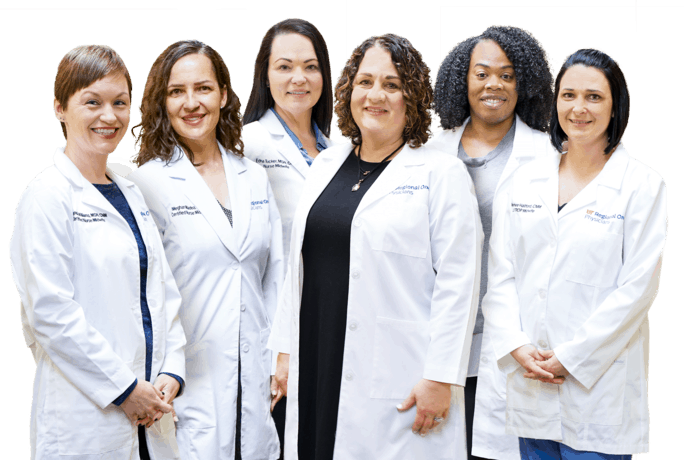Did you know nurse midwives are highly-trained practitioners who can prescribe medication, care for women of all ages and oversee hospital births?
There are a lot of myths out there about this personalized style of care, and Regional One Health’s certified nurse midwives are looking to separate fact from fiction.
Our midwifery practice is available to patients at our Kirby Primary Care and Hollywood Primary Care locations, and Regional One Health is the only hospital in Memphis where women can give birth with the support of a nurse midwife.
A 50-year-old starting menopause, an expectant mom considering her options for pain relief during labor, a teen with questions about her first well woman exam – did you know all of these women (and more!) can benefit from the care of a certified nurse midwife?
Nurse midwives have been around for years, but there are still plenty of misconceptions about what they do. As Regional One Health’s team of certified nurse midwives introduce themselves to a new group of patients at our recently-opened Kirby Primary Care location, they are looking to clear up some of the myths about the personalized, professional care they provide women.
Myth: They don’t have clinical credentials
In fact, it can take around a decade of education and experience to become a CNM; they need at least a master’s degree and some have their doctorate. After that, they must maintain their credentials and licensing through continuing education.

Certified nurse midwives are highly-trained professionals who operate much like a nurse practitioner. “We are registered nurses with at least a master’s degree in midwifery – basically, that means we are nurse practitioners with a specialty in midwifery,” Amanda Williams, CNM said.
Certified Nurse Midwives are Advanced Practice Registered Nurses who are licensed to provide physical exams, medical tests, prescriptions, etc. in clinical and hospital settings.
“We are registered nurses with at least a master’s degree in midwifery – basically, that means we are nurse practitioners with a specialty in midwifery,” Amanda Williams, CNM said.
Myth: They are only for pregnancy and birth
Certified nurse midwife Meghan Madea said midwife literally means “with woman” – and that means all women. “Our team sees women from their first menstrual cycle all the way through menopause.”
Williams said nurse midwives focus on education and are an excellent resource to talk to girls and teens about puberty, preventing pregnancy and sexually transmitted infections, etc. in a safe environment. This can evolve into counseling on birth control as girls get older.
CNMs provide regular gynecological tests and lab work, well woman exams, birth control, care for uterine and vaginal issues, STD screening, etc. They also offer basic primary care, referring to primary care providers and specialists for conditions outside their scope of expertise.
“It’s that continuity of care,” Madea said. “It can be hard to develop a trusting relationship with a medical provider, but as people get more comfortable with you, you can provide better care.”
And that can trickle down through entire families, Williams said.

Midwifery is a great option for women as young as age 12 or 13 all the way through menopause. “It’s that continuity of care,” Meghan Madea, CNM said. “As people get more comfortable with you, you can provide better care.”
“By empowering women from a young age, we set up a better health care future. We embrace their curiosity and encourage them to actively engage in their health, and they take that back to their own families as they care for children, parents, etc.,” she said.
Myth: They only do home births
The opposite is true for our team. “Our certified nurse midwives only take part in hospital births, and Regional One Health is the only hospital in Memphis where a woman can give birth with the support of a nurse midwife,” Madea said.
That said, they go out of their way to give hospital rooms some of the comforts of home – tubs and showers for use during labor, essential oils, support from loved ones, etc.
“We encourage physiological birth, where the woman finds the position that feels best for her. You can be lying in bed, but you don’t have to be,” Madea said. “You can stand, you can be on your hands and knees, you can be on a birthing ball. You can dance!”
Myth: You can’t have an epidural or pain medication during birth
Madea said more than half their patients do have some kind of pain medication. Certified nurse midwives can prescribe epidurals and often do.

Our certified nurse midwives provide well-woman and prenatal care at Kirby Primary Care and Hollywood Primary Care, and Regional One Health is the only hospital in Memphis where women can deliver with the support of a nurse midwife.
It is true that a lower percentage of patients who work with a nurse midwife use pain medication. Part of that is because patients who want a natural birth may seek out nurse midwives because of the additional support they provide; part of that is due to that support itself, which includes alternative therapies like moving around, laboring in the shower or bath, etc.
“What’s important is we don’t tell the patient when they need pain medication,” Madea said. “If the patient decides they need it, we will absolutely get it for them; we also provide alternative ways to seek comfort, like laboring in the bath or shower.”
Myth: You have to choose either a nurse midwife or an OB
Regional One Health’s nurse midwives work closely with their OB/GYN colleagues, including the high-risk pregnancy and maternal fetal medicine practices.
“We’re able to collaborate, refer and consult,” Madea said. “It’s the best of both worlds.”
Williams said midwifery is designed for women with low-risk pregnancies who expect to be able to delivery vaginally. The CNMs can treat some pregnancy complications that arise, and if something is outside the scope of their practice they can continue to see the patient while also connecting them with specialists within the Regional One Health system.
The same is true for complications during labor that lead to a C-section. An OB/GYN would do the surgery, Madea said, but a nurse midwife can continue to offer labor and postpartum support.